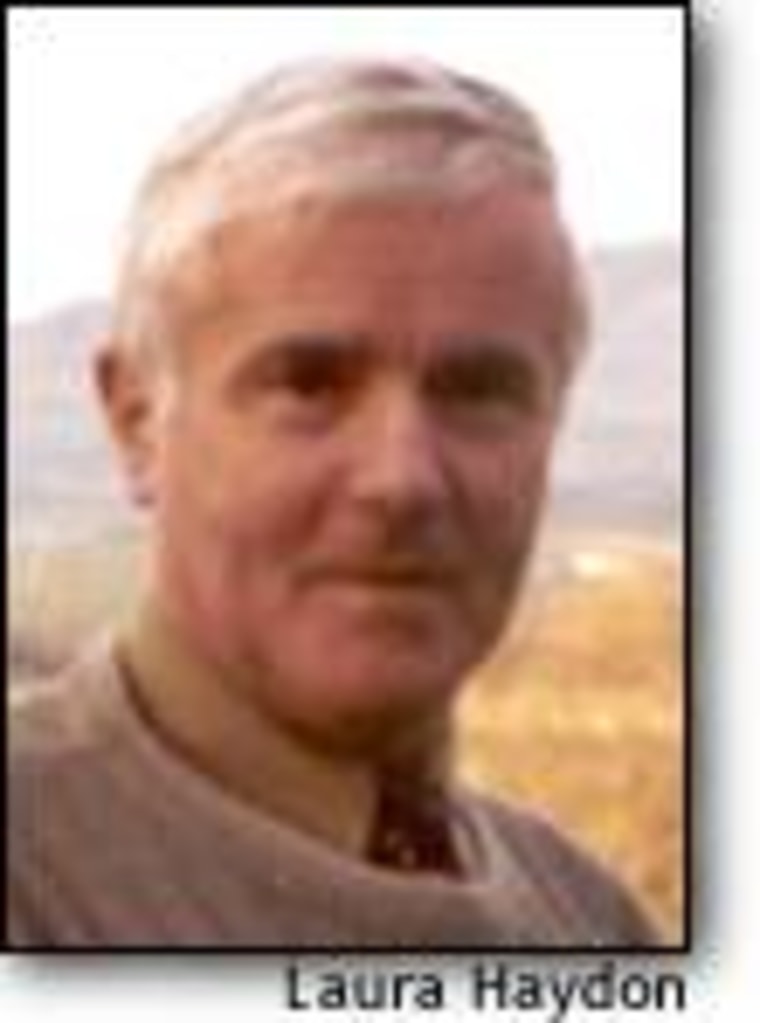The problem of being stranded on the “wrong” side of the border is not unique to Catholics. Jim Devenney, a farmer and member of the Protestant Orange Order brotherhood, lives in the village of Raphoe in the Republic of Ireland. And though he was born and educated south of the border and carries an Irish passport, his cultural identity is British.
Raphoe is in County Donegal, a largely barren, wind-whipped land with a rocky coast battered by the North Atlantic. The few rich farms in this remote part of the island nestle close to the border with Northern Ireland and are owned by Protestant dairy and beef farmers like Devenney.
Donegal is one of the three counties left in the Irish Republic when the frontier was drawn in 1925. Yet Donegal is connected to the Republic of Ireland only by a thread — a neck of land just eight miles wide, running between the lakes of Fermanagh and the Atlantic Ocean — and has more in common with Northern Ireland, geographically and historically, than with the lands to the south.
Back in 1925, Protestants were almost 20 percent of the population. Today, they make up 10 percent of County Donegal’s population — still a sizeable proportion considering that Protestants make up only 3 percent of the Irish Republic’s entire population.
Donegal Protestants were among the most militant in Ireland, and when Irish independence from Britain was debated in 1912, 1,800 of them joined the fledgling Ulster Volunteer Force in defense of British rule. In 1914, the force went to fight for Britain in World War I, where one-third of its members were killed. When Protestant leaders and the British government endorsed the border in 1925, Donegal’s Protestants felt a bitter sense of betrayal.
To Devenney, this event of 75 years ago remains an issue. Although he is an Irish citizen and enjoys excellent relations with his Catholic neighbors, he still feels strongly that the division of the nine-county Ulster province was a dangerous and unnecessary mistake.
“It was assumed that all Roman Catholics were nationalist and wanted a united Ireland. That’s not the case.” He believes there were enough Catholic British sympathizers to have maintained the link with London. He plans to seek a British passport this year as a tribute to the young Donegal Protestants who died for Britain in World War I.
“My identity is British because I feel that I have a debt of gratitude, not to Britain, but to those people who were British and those people who gave their lives for what Britain and what the whole of British culture and identity stands for,” Devenney says.
Today, that sense of betrayal has largely abated and the Protestant community in east Donegal has for the most part eased into an Irish national identity. Ian McCracken, a retired schoolteacher who now works for a community development group, is emphatic about his identity.
“From early days I was never aware of being anything other than Irish Presbyterian,” McCracken says. “There’s a very strong identity with being Irish coming through from our Protestant community in Donegal.”
Recently, McCracken led a group of Irish Protestants to Belfast to meet with a group of Northern Ireland Protestants. “There was a gulf between the two groups in our way of thinking, which really shouldn’t have been there since we’re all Protestant. The Protestant in Donegal has as much if not more in common with his fellow Roman Catholic Donegal person than they would have with the Protestant in Northern Ireland.”
